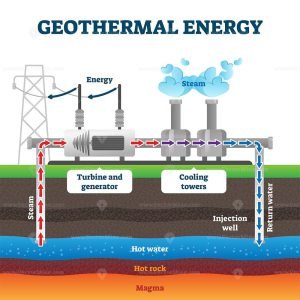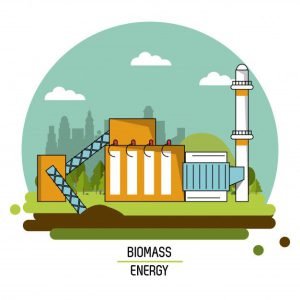.
Renewable energy resources have become an increasingly popular topic of discussion in recent years. With the world’s population continuing to grow and the demand for energy increasing, the need for sustainable and renewable sources of energy has never been more important. In this article, we will discuss what renewable energy resources are, their benefits, and some of the most popular sources of renewable energy.
Renewable energy resources are those that are replenished naturally and can be used without depleting them. They include solar energy, wind energy, hydro energy, geothermal energy, and biomass energy. Unlike fossil fuels, which are finite and will eventually run out, renewable energy resources are abundant and will continue to be available for generations to come.

Benefits of renewable energy resources:
One of the biggest benefits of renewable energy resources is that they are clean and produce little to no emissions. Fossil fuels, on the other hand, produce a significant amount of greenhouse gases, which contribute to climate change and other environmental issues. By transitioning to renewable energy sources, we can reduce our carbon footprint and help mitigate the effects of climate change.
Another benefit of renewable energy is that it is often more cost-effective in the long run. While the upfront costs of installing renewable energy systems can be high, the cost of operating and maintaining them is typically much lower than that of traditional energy sources. Additionally, many renewable energy systems have a relatively long lifespan, which means they can provide energy for decades without needing to be replaced.
Solar energy:
It is one of the most popular sources of renewable energy. Solar panels use photovoltaic cells to convert sunlight into electricity. This energy can then be used to power homes and businesses or stored in batteries for later use. One of the benefits of solar energy is that it is available almost everywhere, making it a viable option for both urban and rural areas. Additionally, solar panels have become much more affordable in recent years, making them accessible to more people than ever before.

Wind energy:
It is another popular source of renewable energy. Wind turbines use the power of the wind to generate electricity. While wind energy is not as widely available as solar energy, it is still a viable option in many areas. Wind turbines are often installed in open areas such as farmland or offshore. Where they can take advantage of the strong, steady winds.

Hydro energy:
It is another renewable energy source that has been used for centuries. Hydroelectric power plants generate electricity by harnessing the power of moving water. This can be done through large dams or smaller, run-of-the-river systems. While hydro energy is not as widely available as solar or wind energy. It can be a great option in areas with abundant water resources.

Geothermal energy:
Geothermal energy is a lesser-known source of renewable energy. It involves harnessing the heat from within the earth to generate electricity. Geothermal power plants typically use steam or hot water from deep within the earth to power turbines and generate electricity. While geothermal energy is not as widely available as some of the other renewable energy sources. It can be a great option in areas with geothermal activity.

Biomass energy:
Biomass energy involves using organic materials such as wood chips or agricultural waste to generate electricity. This can be done through a variety of methods, including combustion or gasification. While biomass energy is not as widely used as some of the other renewable energy sources, it can be a great option in areas with abundant biomass resources.

In conclusion, renewable energy resources are an important part of our energy mix and offer numerous benefits over traditional energy sources. By transitioning to renewable energy sources, we can reduce our carbon footprint, mitigate the effects of climate change, and save money in the long run. Solar energy, wind energy, hydro energy, geothermal energy, and biomass energy are all viable options for those looking to make the switch to renewable energy. With continued innovation and investment, renewable energy resources will continue




